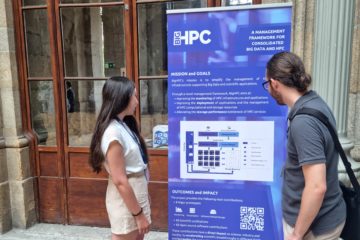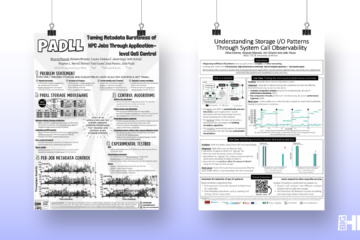The work developed by researchers from the BigHPC project, João Paulo and Ricardo Macedo (INESC TEC), and Vijay Chidambaram (UT Austin), aims at ensuring that supercomputers users can carry out scientific studies — in fields like medicine, natural sciences, climate change and others — much faster and accurately. The results of the research work were presented in late February, at one of the most important conferences in storage systems worldwide: USENIX FAST.
One of the current issues is the large amount of digital data, e.g., genomic data, which these studies need to access efficiently. In addition, supercomputers host hundreds to thousands of studies simultaneously, making this process even more difficult, since studies compete for access to shared storage resources, where their data is stored.
As a result of this work, the BigHPC researchers, in co-authorship with the AIST team, presented the paper entitled “PAIO: General, Portable I/O Optimizations With Minor Application Modifications” at this year’s edition of the USENIX Conference on File and Storage (FAST), one of the most important conferences in the storage field, which took place from February 22 to 24, in Santa Clara (EUA).
“PAIO framework provides the necessary I/O mechanisms for researchers to carry out their studies with fairness, with respect to the access to the required data. This is particularly important for studies with similar runtimes, ensuring that some do not finish within a few minutes or hours, while others require days or weeks”, said Ricardo Macedo.


